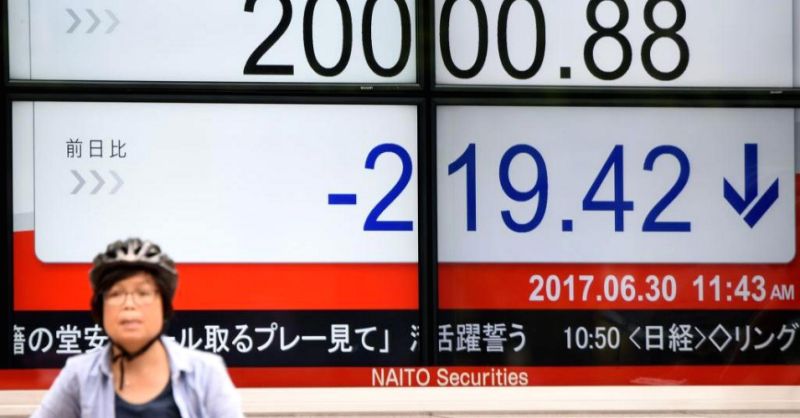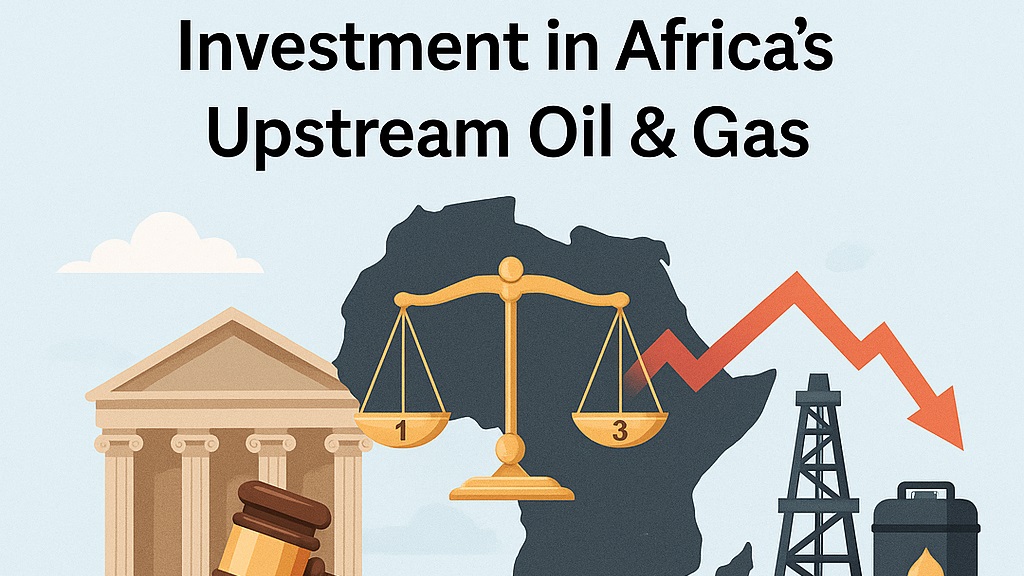Economy
Asian Equities Decline as Trump, Kim Leave Vietnam With No Deal

By Investors Hub
Asian stocks ended Thursday’s session mostly lower as comments by U.S. Trade Representative Robert Lighthizer dampened recent optimism about the U.S.-China trade talks.
Investor sentiment was also dented by weak data from China and news that U.S. President Donald Trump and North Korean leader Kim Jong Un abruptly ended summit talks earlier than scheduled.
Chinese shares fell as weak data reinforced fears that the world’s second-largest economy is losing momentum.
The benchmark Shanghai Composite Index dropped 12.87 points or 0.4 percent to 2,940.95, while Hong Kong’s Hang Seng Index fell 124.26 points or 0.4 percent to 28,633.18.
Activity in China’s vast manufacturing sector continued to contract in February, and at a faster rate, the latest survey from the National Bureau of Statistics revealed with a manufacturing PMI score of 49.2.
That missed expectations for a score of 49.5, which would have been unchanged from the previous month.
The non-manufacturing PMI came in with a score of 54.3 in February – shy of expectations for 54.5 and down from 54.7 in the previous month.
Japanese shares fell as hopes for progress in U.S-China trade talks faded and a historic summit ended without agreement on the denuclearization of the Korean Peninsula. Weak industrial output and retail sales data also weighed on markets.
The Nikkei 225 Index slid 171.35 points or 0.8 percent to 21,385.16, while the broader Topix closed 0.8 percent lower at 1,607.66.
Machinery and shipping stocks fell the most, with Fanuc, Mitsui OSK Lines and Komatsu falling 2-3 percent. Gaming firm Nexon Co. soared 4.7 percent on buzz that its holding firm NXC Corp. is up for grabs.
In economic news, industrial production in Japan plunged a seasonally adjusted 3.7 percent in January, a government report showed. That missed expectations for a decline of 2.5 percent following the 0.1 percent dip in December.
The total value of retail sales in Japan was down a seasonally adjusted 2.3 percent sequentially in the month, missing expectations for a decrease of 0.8 percent following the 0.9 percent increase in December.
Meanwhile, Australian markets eked out modest gains, with financials and healthcare companies leading the surge.
The benchmark S&P/ASX 200 Index rose 18.70 points or 0.3 percent to 6,169, taking the monthly gain to over 5 percent, its biggest monthly gain since July 2016. The broader All Ordinaries Index ended up 19.10 points or 0.3 percent at 6,252.70.
The big four banks rose between 0.4 percent and 1.3 percent in light of a less harsh outcome from a bank inquiry into financial misconduct. Healthcare stocks witnessed defensive buying, with CSL jumping 3.1 percent.
Ramsay Health Care surged up 5.9 percent as it reported a nearly 10 percent increase in first-half profits and reaffirmed its outlook for full-year earnings.
Mining stocks ended mixed after the release of weaker Chinese factory data. BHP fell 1.2 percent and Fortescue Metals Group tumbled 5.2 percent, while Rio Tinto rose over 1 percent.
On the data front, reports on private capital spending and private sector credit proved to be a mixed bag.
Seoul stocks closed sharply lower as the U.S.-North Korea summit ended abruptly with no deal. The benchmark Kospi plunged 39.35 points or 1.8 percent to 2,195.44 ahead of a long holiday weekend.
The local markets will be closed Friday to commemorate the March 1 Independence Movement, which took place in 1919.
Tech stocks succumbed to heavy selling pressure, with LG Electronics, Samsung Electronics and SK Hynix losing 2-5 percent.
Investors ignored positive industrial output data showing that production in South Korea climbed a seasonally adjusted 0.5 percent in January, rebounding from the 0.8 percent contraction in December.
Economy
Nigeria Attracts $5.3bn Upstream Investments in 2025

By Adedapo Adesanya
Nigeria has emerged as Sub-Saharan Africa’s leading upstream oil and gas investment destination in 2025, attracting $5.3 billion in capital, according to a report by industry intelligence firm, Wood Mackenzie.
The investment into the country happened despite an 18 per cent decline in upstream spending across the region, underscoring the impact of recent fiscal and regulatory reforms.
Wood Mackenzie disclosed that Nigeria retained the top spot for upstream capital inflows, even as investment activity slowed sharply across Africa.
Notably, only two Final Investment Decisions (FIDs) were recorded across Sub-Saharan Africa in 2025, with Nigeria securing one of them.
The FID was reached on the Shell–Sunlink HI Field (OML 144), a shallow-water non-associated gas project, following the introduction of Nigeria’s Non-Associated Gas (NAG) incentives in 2024.
The incentives restored the project’s commercial viability and unlocked critical gas feedstock for Nigeria LNG Limited (NLNG) which according to Wood Mackenzie signals a clear shift in investor confidence.
“Nigeria’s NAG incentives have materially improved gas economics, enabling projects that were previously marginal to reach FID,” the firm noted.
The latest investment milestone marks a sharp turnaround from previous years.
Between 2015 and 2023, Nigeria captured just 4 per cent of Africa’s sanctioned FIDs, securing $5 billion across six of 44 projects.
However, over the last two years, Nigeria has attracted 38 per cent of Africa’s sanctioned FIDs, accounting for $8 billion across five of eight projects continent-wide.
“This reversal highlights the impact of decisive reforms implemented over the past 24 months,” Wood Mackenzie said, adding that Nigeria now offers “among the most competitive deep-water fiscal terms globally and the most attractive gas terms in Africa,” it said.
Looking ahead, the firm expressed optimism that Nigeria will sustain the momentum into 2026. “With targeted incentives and a stable, investor-focused policy framework, we expect additional FIDs to be sanctioned,” it stated.
The resurgence positions Nigeria as a standout destination for upstream oil and gas investment at a time when capital discipline and policy uncertainty continue to weigh on much of Sub-Saharan Africa.
The Bola Tinubu administration has reiterated its commitment to boosting investment in the country’s energy sector, particularly in oil and gas. In May 2025, President Tinubu issued a new executive order (EO) to lower project costs, attract investment, and enhance revenues from oil and gas operations.
The new order builds on the administration’s 2024 presidential reform directives, which introduced enhanced fiscal terms, streamlined project timelines, and aligned local content policies with global best practices.
Economy
Access ARM Pensions Grows Asset Under Management to N4trn

By Adedapo Adesanya
Access ARM Pensions, the pension subsidiary of Access Holdings, has exceeded the N4 trillion mark in assets under management (AUM), underscoring strong momentum following the merger of Access Pensions and ARM Pensions, the company said in a statement on Wednesday.
The financial institution said the achievement represents a significant increase from less than N3 trillion AUM recorded after the merger in October 2024.
“Since then, the combined entity has accelerated growth, supported by stronger governance structures, enhanced investment capabilities, and an expanded nationwide presence.
“The rapid increase of over N1 trillion in AUM in less than 14 months reflects growing confidence among contributors, increased contribution flows, and improved customer engagement enabled by more robust digital platforms and service channels,” the statement read in part.
Speaking on the milestone, the firm’s acting Managing Director, Mrs Abimbola Sulaiman, described the achievement as a clear indication of the trust placed in the institution and the strength of its operating model.
“Crossing the N4 trillion threshold is not just a milestone; it is a strong affirmation of the confidence our clients place in Access ARM Pensions. Since the merger, we have deliberately built an institution with stronger governance, deeper investment expertise, and the scale required to deliver long-term value across economic cycles.
“This growth reflects disciplined execution and a consistent focus on acting in the best interests of our clients.”
She added that innovation would remain central to the company’s growth strategy, with continued investment in technology to enhance service delivery and deepen engagement across customer touchpoints.
“Innovation will continue to guide how we serve our clients. By leveraging technology, data, and modern service infrastructure, we are simplifying the pension experience and building a more responsive and reliable retirement system.
“As we continue to grow, our priorities remain unchanged: consistent investment performance, strong risk management, and dependable service that gives our clients confidence in their retirement future.”
With over two million Retirement Savings Accounts under management, the statement noted that Access ARM Pensions maintains one of the largest contributor bases in Nigeria’s pension industry.
“The company remains focused on strengthening its investment processes, enhancing customer experience, and delivering sustainable, long-term retirement outcomes for contributors nationwide.”
Economy
Zichis Joins NGX, Lists 600.0 million Shares Worth N1.086bn

By Dipo Olowookere
The Nigerian Exchange (NGX) Limited has welcomed a new member and its Zichis Agro-Allied Industries Plc.
The company listed its shares on the local stock exchange on Tuesday, January 20, 2026, and was assigned the trading symbol, Zichis.
Business Post reports that Zichis boosted the market capitalisation of Customs Street by N1.086 billion with the listing of 600 million ordinary shares of 50 Kobo each at N1.81 per unit.
The stock exchange put Zichis under its growth board standard segment.
The new member of the Nigerian bourse was welcomed with open arms by investors yesterday as it was among the most traded stocks for the session.
Yesterday, traders bought and sold 69.6 million shares of Zichis Agro Allied Industries worth N138.5 million at the close of transactions.
The Head of Issuer Regulation Department of the NGX, Mr Godstime Iwenekhai, disclosed in a circular that Zichis listed its stocks on the platform by introduction.
“Trading license holders are hereby notified that the entire issued and fully paid 600,000,000 ordinary shares of Zichis Agro-Allied Industries Plc were listed by Introduction at N1.81 per share on the standard segment of the growth board of Nigerian Exchange Limited on Tuesday, January 20, 2026.
“The trading symbol of Zichis Agro-Allied Industries is ZICHIS,” the notice disclosed.
This is the first major listing on the NGX in 2026.
After the listing yesterday, executives of the organisation met with stakeholders to explain what they do and more insights into the company’s numbers.
-

 Feature/OPED6 years ago
Feature/OPED6 years agoDavos was Different this year
-
Travel/Tourism9 years ago
Lagos Seals Western Lodge Hotel In Ikorodu
-

 Showbiz3 years ago
Showbiz3 years agoEstranged Lover Releases Videos of Empress Njamah Bathing
-

 Banking8 years ago
Banking8 years agoSort Codes of GTBank Branches in Nigeria
-

 Economy3 years ago
Economy3 years agoSubsidy Removal: CNG at N130 Per Litre Cheaper Than Petrol—IPMAN
-

 Banking3 years ago
Banking3 years agoFirst Bank Announces Planned Downtime
-

 Banking3 years ago
Banking3 years agoSort Codes of UBA Branches in Nigeria
-

 Sports3 years ago
Sports3 years agoHighest Paid Nigerian Footballer – How Much Do Nigerian Footballers Earn













